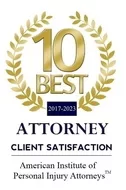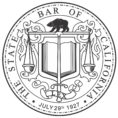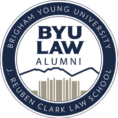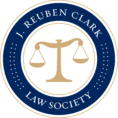Car Accident While Driving to Work: What to Do
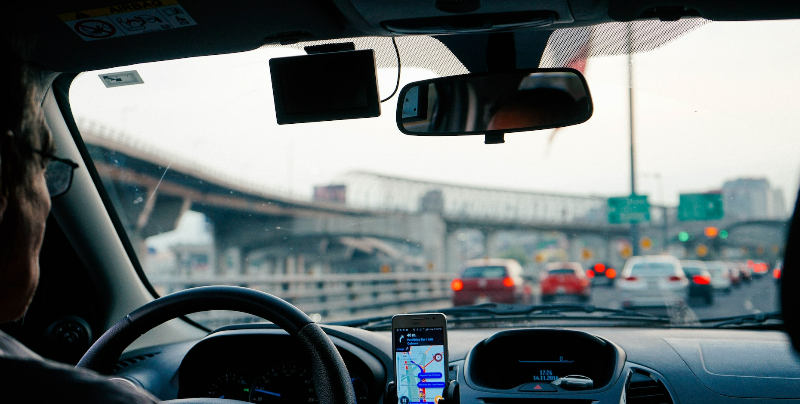
You are on your way to work in your personal vehicle when, all of a sudden, another car collides with yours. You are shaken, wondering if you are injured, how much damage was done to your vehicle, and how late you will be to work. More questions arise as an employee, depending on whether you are driving your personal vehicle or a company vehicle.
The CDC states, “All workers are at risk of crashes, whether they drive light or heavy vehicles, or whether driving is a main or incidental job duty.” Indeed, $72 billion was the total cost to U.S. employers for motor vehicle crashes at work in 2019. If you were involved in a car accident as an employee while driving to work, you are likely wondering what your options are.
At Harker Injury Law, our skilled legal team is committed to providing the attention and representation you deserve. We treat our clients like family, and we fully believe that every case is important, whether big or small. Contact us today to find out what to do about your car accident – at no cost to you.
What to Do After Your Commuting Accident
In the immediate aftermath of a car accident, you are likely overwhelmed and unsure of what to do. This can be even more true if you were on your way to work in one of the company vehicles, your personal vehicle, or to perform a work-related task.
You may wonder whether to call your boss or the police, when to talk to the other driver, or how to let your coworkers know that you’ll be late. You are sure to have plenty on your mind.
It is important to remember that, similar to other car accidents, a crash on your way to work needs to be dealt with calmly.
Follow these steps as soon as possible after your collision:
- Check your surroundings
- Take photos of vehicle damage
- Stay safe
- Call the police
- Exchange insurance company information with the other driver(s)
- Get checked out medically, and;
- Call your employer to let them know that you’ve had an accident
It is vital to document everything well. Keep track of police reports, photos of the scene, and medical records. Doing so could help you later when your car accident attorney is collecting evidence to determine who is responsible.
While your employer may sympathize with your predicament, they are unlikely to assume that they should be held liable. If you are involved in a motor vehicle accident on the way to work, they will likely assume that you or the other driver are responsible for any damages.
It is not always possible, as an employee, to make your employer pay or to hold them responsible or liable for the vehicle damage.
Why It Matters When the Accident Happened
When an employee’s car accident occurs while they were driving a company car or they had a car accident while driving for work, the law is clear. Your employer would likely share some responsibility for the damage. However, commuting or driving to and from work is not automatically considered to be part of the scope of your employment or job duties.
Additionally, it is normal for an employee to use his or her personal vehicle when driving to work, not the company’s. Your employer is not liable for your actions in your personal vehicle, like when you perform personal tasks, run errands, or pick your kids up from school. Similarly, during your commute, you are still on your own time, not yet on the corporate clock.
When the time of the accident is outside of work hours, it is not always obvious that the accident occurred due to work-related purposes. The key to determining whether or not your employer may have some stake in your car accident while driving to work is understanding the going-and-coming rule and its exceptions that have to do with personal vehicles.
It is important to note that if you are an independent contractor, the rules on liability for injuries may vary. Independent contractors are not employees. So, even if the employer asked them to perform something work-related, the employer may not be liable, or the employer’s insurance may not pay.
A car accident in a personal vehicle while performing personal errands would likely be paid for by personal insurance in the case of an independent contractor.
The “Going-and-Coming” Rule
Part of the State of California’s Civil Jury Instructions, the going-and-coming rule comes from workers’ compensation-related law. It states that while traveling to and from the workplace, the employee is not acting within the scope of their employment. Therefore, the employer is not liable for any accidents that happen during that time.
The legal reasoning behind this principle is that you are not providing a specific service to your employer by simply driving to work. Your employer has not received any benefit from your actions yet, as you would not have been actively working yet. So neither you nor anyone else who is injured in the car accident can receive compensation for injuries from your employer.
Whether your employer may be liable or not, as an employee with vehicle property damage, you likely want to ensure that the right people are held liable for your work-related accident.
Liability insurance is a necessity for all drivers who are involved in car accidents, even those caused by a personal situation or mechanical failure. Employers carry additional insurance coverage for the sake of each employee. An experienced personal injury lawyer could help you determine your eligibility.
Exceptions to the Rule
The going-and-coming rule does not allow the average employee to claim workers’ compensation benefits when injured in a traffic accident on the way to work. Still, there are several exceptions to the rule when your employer may be liable.
It is important that you seek legal advice to see if your case meets the requirements to qualify for any of the following exceptions:
- When the employer pays for the travel time
- When the use of a personal vehicle is a condition of employment
- While running errands for the employer
- When it is necessary to go to multiple work locations during a workday
- During a business trip or commercial travel
- While driving a company car
- When performing a special task outside of work hours
- When the accident occurs on company property
- If the employer expects the employees to be on-call during their commute
This is not an exhaustive list of all exceptions but rather a guide to help you start thinking about the circumstances of your case. Even if the going-and-coming rule does not apply in your case, you may still have some legal recourse depending on the circumstances of your case.
Your employer’s insurance company may claim no liability due to the use of your personal vehicle. However, if you were conducting work-related tasks at the time of the accident, you shouldn’t have to bear the brunt of the burden. Even outside of work hours, an employee performing work-related duties should not be held solely responsible.
Vicarious Liability and Respondeat Superior
The legal doctrine of vicarious liability holds employers vicariously responsible for any negligent actions of their employees. This is only when the employee was in the course of their job when they acted negligently. This can be a tricky concept to prove, especially if your accident occurred while on the way to work.
One type of vicarious liability is respondeat superior, which is Latin for “let the master answer.” This concept gives employers more responsibility for certain tasks than are implied in the working relationship, such as commuting to job sites. In these cases, the employer may share liability when an employee has an accident on the way to and from work.
These legal concepts can be difficult to understand. How does a personal errand versus a work-related task differ when determining who is responsible? Many jobs require travel, but not all times of the day outside of work hours can be automatically covered under a workers’ compensation claim.
An experienced work injury attorney near you can give you the professional legal advice you need to know how to pursue compensation as an employee.
Common Roadblocks With Commute-Related Workers’ Comp Claims
Workers’ comp insurance is what employers are required to carry for their employees, which covers them in the case of work-related accidents or injuries.
Workers’ comp generally will pay you for the following damages:
- Medical bills
- Rehabilitation for injuries
- Lost wages
- Property damage
- Pain and suffering
This financial assistance can get you back on your feet and back to work. It is designed to help employees who were involved in an accident where the company or employer is partly liable. However, if your accident occurs while driving to work, this is not likely going to be covered by workers’ comp due to lack of employer liability.
Finding an attorney to help you fight your car accident case and find the appropriate exception to the going-and-coming rule can give you a higher chance of employer-provided pay through employer liability insurance. He or she can prove that you were performing a work-related task in your personal car.
Personal injury cases become increasingly complicated if the employee’s negligence caused the car accident or if the other person involved in the crash is uninsured. It is important that you know your rights when it comes to workers’ comp and auto accidents so that you can recover without facing long-term personal costs. Those responsible for your work-related injuries sustained while en route to work should be held responsible.
How Harker Injury Law Can Help
Car accident cases and workers’ compensation claims in California can be tricky. The personal injury legal team at Harker Injury Law wants to help car accident victims figure out what their best options are. We can make it possible for you to receive payment for your injuries and damages to your personal car so you can take the time you need to heal.
We work on a contingency basis, which means that you only pay us a portion of your compensation once we help you get that award. We have won millions of dollars for our clients, and we will fight for the best possible outcome for you.
Whether your case is a car accident case or a workers’ compensation claim, we will know the case law and how to assist you. Fill out the online form to schedule a free consultation today to talk to a car accident lawyer about your car accident personal injury case. Let us fight for your rights.



